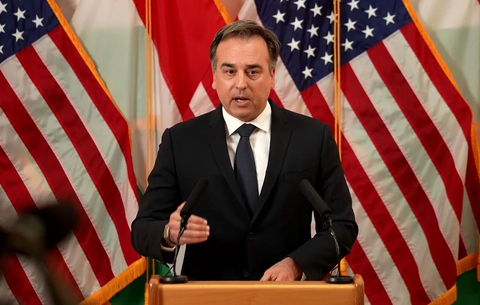Closing the loopholes
"We've discussed this too often," said Károly Herényi, a Hungarian Democratic Forum (MDF) MP in early November. The matter at issue was the government's draft 'financial salad law'.
The aim is to change laws on the capital markets, on credit institutions and on finance houses, primarily in order to bring them into line with European Union directives. Yet the same excuse has been used twice in the past fourteen months to justify enacting changes to the stock markets law. For Herényi, "this creates uncertainty amongst investors and financial markets actors."
On this occasion, the government wants the change because the EU's own regulations have changed, but also because the law has to reflect reality if the home market is to develop quickly. Or so says Albert Molnár, political state secretary at the Finance Ministry, who moved the 'salad law' in Parliament. As a sweetener, he added that the changes would close a few legal loopholes that were being abused.
Two modified EU directives have to be implemented in Hungarian law: one on public bidding and another on investment recommendations. The government would like to see several changes to the law on company acquisitions. This has been a political matter since 2000, when Russians took over the helm at BorsodChem. The big change would be that a group holding 75 per cent of a company's shares would not be bound by earlier company rules. They could revise company by-laws at the first shareholder meeting following their takeover, and they could replace the company's management, ignore golden shares and overrule regulations on the maximum voting power that can be held by a single actor.
This would mean that the two biggest companies on the Budapest Stock Exchange - MOL and OTP - would have no defence against encroaching investors. They would in any case have lost this protection in 2010, but this would bring that day forward. Currently, no shareholder at Mol can exercise more than 10 per cent of the votes. That threshold is at 25 per cent at OTP, but all the foreign shareholders put together make up less than half OTP's total share base.









